Private Label Costs When Selling on Amazon (More Expensive Than You Think!)
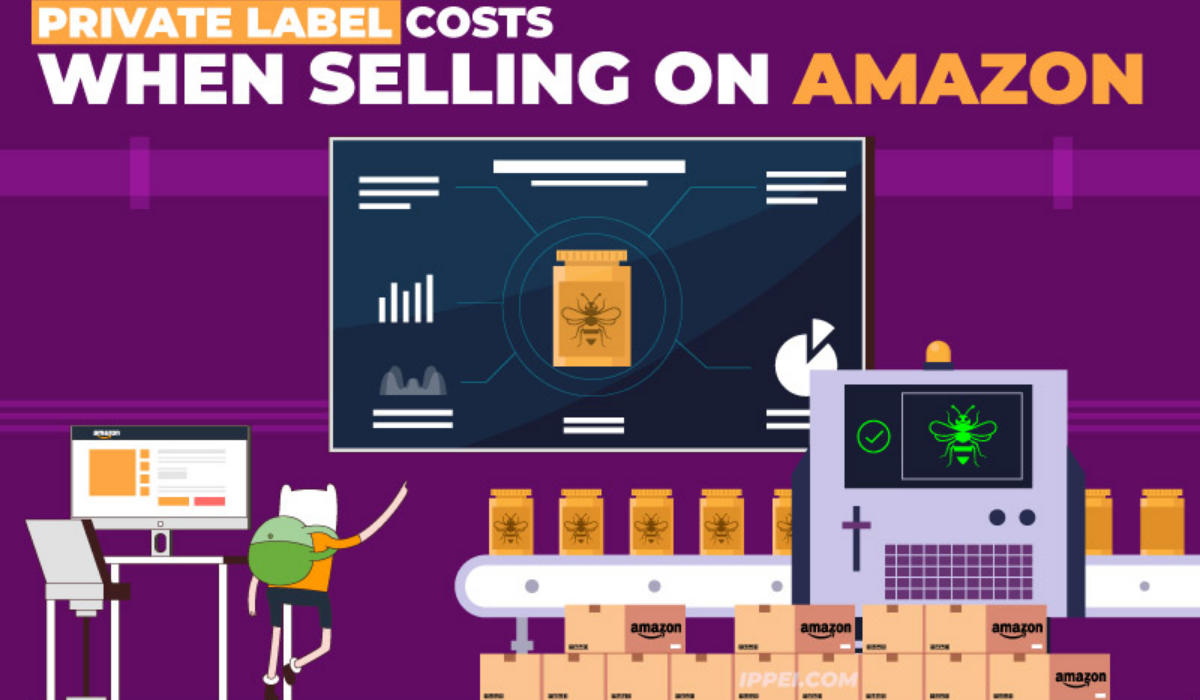
According to JungleScout, private label is BY FAR the most popular Amazon business model in 2025. 59% of Amazon sellers use the private label method, while the next most popular methods are wholesale and retail arbitrage, both used by just 26% of sellers. Even Amazon itself places a major focus on growing its in-house private label brands like Amazon Basics, which account for about 1% of the company’s overall sales. However, compared to other Amazon business models, you usually need more capital to get started private labeling. You’ll be surprised at just how expensive some of these private label costs are as an Amazon seller..
What is Private Label?
Private label (a.k.a white label) on Amazon is taking a generic product from a manufacturer and making it your own branded product by selling it with your logo and branded packaging. Multiple sellers can sell the same product from the same manufacturer using their own branded materials to promote the product. Therefore, success in private labeling often comes down to which seller can present the product to customers the best to attract more sales and reviews.
It’s possible to differentiate your product from the competition by requesting that manufacturers make minor adjustments or improvements to your version of the product. However, Amazon product listing optimization is essential for separating yourself from competitors with a similar offer.
Fun Fact: The term “white label” comes from the image of an unbranded product with white packaging that can be filled with a brands imagery.

Now that you know what private label is, let’s dig into each of the private label costs you can expect when getting started. Some of these costs have gotten incredibly expensive, leading some sellers to wonder if Amazon private label is dead .
Professional Seller Subscription
The Professional selling plan on Amazon is a 39.99/month flat rate fee that allows you to sell as many products as you want. In contrast, Amazon also offers an Individual seller plan that, instead of a flat rate, charges you $0.99/item sold. For private label sellers who want to scale their business, choosing the Professional Seller plan is necessary because of its extensive features over the Individual plan. Some additional benefits of the Professional seller subscription include:
- Inventory management using spreadsheets, feeds, and reports
- API functions through Amazon Marketplace Web Services
- Ability to set your own shipping rates for non-Media products
- Special listing features like promotions and gifts
- Eligible for listing placement on Featured Offer
- Ability to calculate U.S. sales tax on your orders
- Claim certifications recognized by Amazon
If you want to be successful with a private label product and move up the ranking for major keywords so you can make organic sales, you probably need to generate a sales velocity of over 40 units/month, anyway. Therefore, the $39.99/month Professional seller subscription is a must.
Amazon Product Research Tool
Amazon product research tools are extremely useful for analyzing Amazon Marketplace data quickly and efficiently to help make product decisions. In 2025, Amazon is so competitive that tracking down private label opportunities without this kind of tool is nearly impossible. There are a few options to choose from, including JungleScout, Helium 10 and Viral Launch. Pricing ranges anywhere from $29/month for the most basic features up to $200+/month for more advanced abilities.
Pro Tip: Do monthly billing instead of annual. In his Private Label Masters course , Tim Sander recommends thinking about this as a one time monthly fee to get started. Most sellers are only launching 1 - 2 private label products per year. Therefore, you’ll likely only need this service for one month to find a private label opportunity.
Product Sample
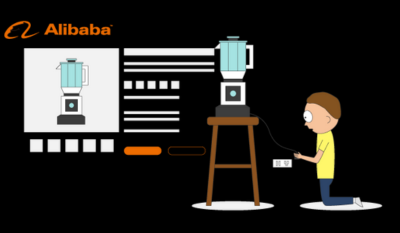
Once you have found a private label product opportunity and narrowed down a factory that can produce the product for you, you’ll want to order samples. One of the most popular b2b marketplaces for finding manufacturers for Amazon products is Alibaba. Alibaba notes that the cost of product samples can vary depending on the amount of work that goes into creating the sample and your geographic location in relation to the factory. Most sellers can expect to pay between $50 - $100 for a product sample and express air shipment.
Pro Tip: It’s not uncommon for manufacturers to agree to remove the price of the product sample when you place your first bulk order. When you are negotiating the sample with the manufacturer, see if they’ll agree to this condition for your intended order size.
Quality Inspection Service
When ordering products in bulk, it’s best practice to have a quality inspection completed on your products to make sure the factory has produced your private label products to the agreed upon standard. Accepting a product order with a high amount of defective products can be extremely costly to your business, as customers aren’t likely to accept these items. Poor quality products can also harm the reputation of your business, so you don’t want your customers to receive them, anyway.
According to China-based Inspectaman, the cost of an inspection in China costs anywhere from $180 - $320/day. Depending on the complexity of your product and what percentage of the order you want inspected, a quality inspection can drag beyond a single day. However, most new sellers have smaller product orders, so estimating these costs based on one day should be just fine in most scenarios.
Private Label Product Bulk Order #1
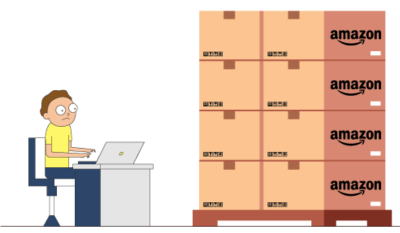
For most private label sellers, the most expensive cost when getting started is the cost of the products themselves. When buying products in bulk for private label, manufacturers will require you to purchase a minimum order quantity (MOQ) to make it worth their time. MOQ’s can vary greatly depending on the product and manufacturer, but 500 units is common and provides a seller with a sufficient stock of inventory to get started with. If the first product order proves your private label product to be a worthwhile opportunity, you can increase your order amount to get an even cheaper per unit price on your products.
Amazon guru Dan Rodgers suggests selling private label products for $30+ to allow yourself an adequate profit margin after all expenses. Products selling for this amount on Amazon usually costs $6-$9 to manufacture. Therefore, the average private label Amazon FBA seller can expect to spend $3,000 - $4,500 on their first product order. Of course, there are Amazon FBA sellers who find the perfect product opportunity where they can get started for much cheaper. However, there are also those that spend $10,000+ to create their first Amazon FBA private label product, so $3,000 - $5,000 is a fair estimated starting cost.
International Shipping and Duties

International shipping and import duties are another major cost for Amazon FBA sellers importing private label products from abroad. For many, navigating the complexity of international shipping is one of the most challenging parts of selling private label products through Amazon. However, you can outsource all the hassle of international shipping to your manufacturer or third party freight forwarder company.
Whether you use your manufacturer or third party freight forwarder, it’s important to understand what’s included in your shipping quote. Aside from the cost of shipping itself, there are many other costs associated with international shipping like:
- Customs duty and tariffs
- Lane charges
- Usage and storage fees
- Trucking and drayage
- Documentation fees
- Shipping security and insurance
Some shipping quotes may be quoted just to ship the products from one international port to the other, with you required to move your products past customs and hire a domestic service to finish transporting your products to the Amazon warehouse. Other shipping quotes might include all costs, including shipping, duties and transporting your products from the domestic port to an Amazon fulfillment center.
You can use the free shipping calculator from online freight forwarder marketplace, Freightos, to get an accurate shipping quote. As an example, we estimated the shipping cost for 500 units of a product that fits within Amazon’s large standard size. For 500 units of a product weighing 3 pounds and 16x10x4 inches with essentials included, like insurance and customs bond, the current cost is just over $2,100 from Guangzhou, China to Los Angeles.
Branding/Design
Logo
An Amazon private label product needs a logo to differentiate itself from similar products sold on Amazon. You can find graphic designers to create your private label logo on Fiverr for $10 - $100+.
Product Packaging (optional)
Similarly to logo design, you can also find Amazon product packaging designers on Fiverr, starting at around $30. Custom product packaging isn’t absolutely necessary, but it helps to differentiate your brand. If you want to create a brand that people recommend and keep coming back to, custom Amazon product packaging can provide a major boost.
The Amazon Brand Registry (Optional)
Joining the Amazon Brand Registry allows sellers enhanced opportunities on Amazon, including:
- Ability to use Amazon A content for improved product description and visuals
- Improved seller support from Amazon to quickly handle suspicious activity
- Access to create your own custom Amazon storefront to attract more customers
- Advanced analytics to better understand your customers
Obviously, joining the Amazon Brand Registry improves your prospects when selling on Amazon. However, you need a registered trademark for your business, which is neither cheap nor fast to obtain. According to LegalZoom, fees for a trademark filed electronically will set you back $250-$350. Furthermore, the entire process takes an average of 12 - 18 months before you can even use your trademark!
Amazon IP Accelerator Program
If you want to skip the normal wait time and enjoy the benefits of the brand registry immediately, the Amazon IP Accelerator program is your best option. Through this program, Amazon has partnered with a small group of IP law firms ready to assist with your trademark. If you submit a trademark application with one of the partnered firms, Amazon provides you access to the brand registry before your trademark has been fully processed. Although the program itself is free in the sense that Amazon doesn’t charge a fee, the cost of working with the IP law firms is substantially higher than filing yourself through the United States Patent and Trademark Office.
Listing Optimization
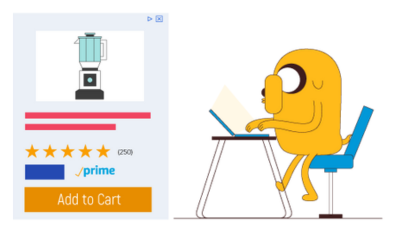
Listing optimization is critical to increase the visibility of your white label product on Amazon and drive more sales than your competition.
Keyword Research
With a little effort, doing your own keyword research is entirely possible. Most product research tools have a keyword research component as well to help you narrow down the best words to target. Or, you could just pay someone $10 - $50 on Fiverr to do Amazon SEO research for you.
High-Quality Product Photos
As Amazon is a virtual marketplace, high-quality product photos and infographics portraying the benefits of your private label product are crucial. Unless you are a talented photographer with access to photography equipment, you’ll want to hire someone to take your product photos for you as your product photos play a major role in the customer’s decision. You can find professional Amazon product photographers on Fiverr for**$100 - $500+**.
Professional Copywriting
Can you write in a way that convinces people to take action? If you can’t give a definitive “yes” to that question, you may also want to consider hiring a copywriter for your Amazon product listing. You can pay someone on Fiverr $20 - $50 to write an SEO optimized product title, bullets and description.
GS1 Barcode (Optional)

According to JungleScout, Amazon requires all products to have a GS1 barcode in order to list on the platform (unless it has a GTIN exemption). Therefore, many sellers who wish to sell on Amazon need to get a barcode directly through GS1 . The minimum number of barcodes you can buy is 10, which has a price of**$250**.
However, as a private label seller, you can qualify for the GTIN exemption and do not need a GS1 barcode to list your product on Amazon. Instead, you can just use an Amazon barcode, or FNSKU. When you list your product on Amazon, you can either print and attach the Amazon provided barcodes to your products yourself or have Amazon do it for you for a small fee if using FBA.
Amazon FBA Fees (optional)
The majority 73% of sellers use Amazon FBA to fulfill their orders, according to SellerApp. Selling your private label products through Amazon FBA allows you improved opportunities on Amazon, like selling to their high-value Amazon Prime members. Therefore, even though you can start a private label business on Amazon and fulfill your own orders, it’s usually better to use Amazon FBA, so we’re including those costs.
The main costs to consider with Amazon FBA are:
- Referral fee - 8% - 15% of sale price (depending on product category)
- Fulfillment fee - typically $2.92 - $6.50+/unit (depending on product type, size, and weight)
- Monthly storage fee - $0.83 - $2.40/cubic foot
There are additional fees you can incur when selling through FBA , however, they are not as common.
Amazon PPC
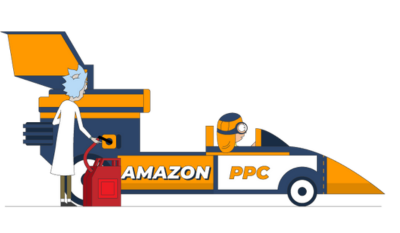
Unless you are an established brand selling on Amazon for some time and your product ranks well for high-volume keywords, you’re going to need to use Amazon ads as part of your strategy. You can leverage Amazon PPC to push your product to the top of the search result page for keywords of your choice.
With Amazon PPC, you pay for advertising only when an Amazon shopper clicks into your advertisement. You target customers by targeting the keywords they are most likely to choose to search for your product. It’s a competition with other sellers for that prime advertising real estate on the first page. Therefore, if you are in a competitive niche and targeting a high volume keyword, expect your cost-per-click to be high.
According to JungleScout, Amazon PPC can cost from $0.05 - $10/click depending on your product’s niche. Amazon PPC optimization is different for every private label product, so it’s essential to start with the right Amazon PPC strategy. According to Amazon marketing agency Optimizon, 10% of your revenue is a good starting point for PPC. From there, you can optimize your Amazon PPC strategy over time.
Marketing Outside of Amazon (Optional)
One major benefit of having your own branded product is the marketing potential outside of Amazon. Amazon listing service Kenji ROI highlights why it’s necessary to advertise outside of Amazon, because Amazon PPC is an ever-increasing bidding war with the cost of high-volume keywords inflating as more sellers join the platform.
You can increase and diversify your advertising reach by allocating a portion of your marketing budget to off-platform channels like social media or a blog. You can expect to spend anywhere from $0 - $500+ for off-platform marketing, depending on the channels you choose and what help you need. If you have the time and skill, social media is free to set up and you can promote your products yourself. Or you can hire a digital agency to assist you with a strategy and content creation.
With a private label product, the goal is to build a recognizable brand and generate customer loyalty. By making your offer and brand visible outside of Amazon, you can enhance the perception of your brand as more than just an Amazon product. You are a unique brand.
Conclusion
As you can tell, the costs to start your own Amazon private label brand can vary dramatically. Amazon performance advertising company SellerMetrics outlines private label costs for launching a product to be anywhere from $4,000 - $12,000. However, $4,000 is a bit low from our perspective.
When considering just the minimum costs of sourcing a product that is likely to leave you with a satisfactory profit margin from China, the cost of just the product itself and international shipping already likely surpasses $4,000. Therefore, we recommend new sellers who are getting started with private labeling to have $6,000 - $10,000 in capital ready to start their venture.
Amazon private label isn’t cheap to start, but as your own brand owner, there is great potential to build a profitable business. However, it’s important to weigh all your options before diving into an online business venture. In 2025, there are many online business opportunities that pay well.

Follow Me
Ippei Kanehara
Founder/CEO
$52K per month providing lead generation services to small businesses
Ippei.com is for digital hustlers, industry leaders and online business owners.
His #1 online business recommendation in 2024, is to build your own lead generation business.